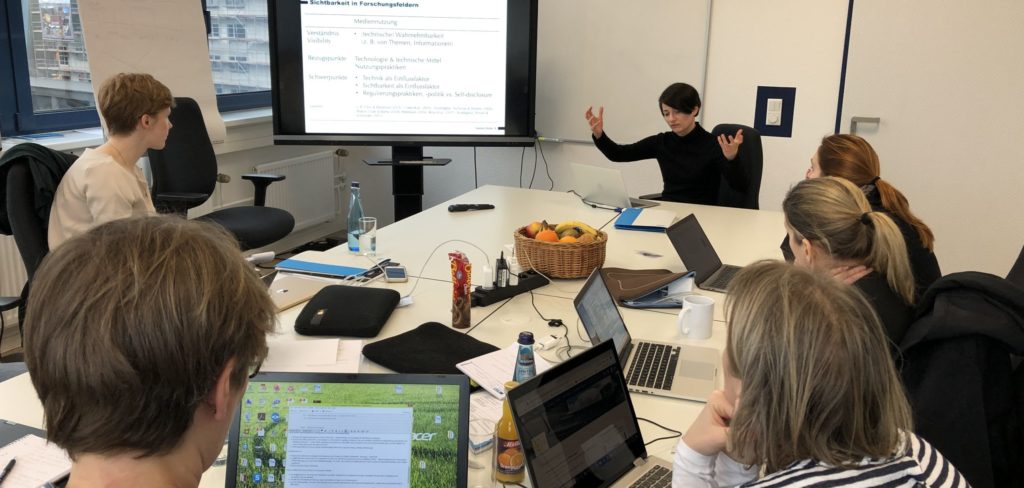From February 13 to 14, 2020, our research group met for the third time at the Bochum Center for Advanced Internet Studies (CAIS). The CAIS promoted the meeting within its funding scheme for working groups.

The first day was used for presentations and discussion. Ines Engelmann kicked off the meeting with her talk on the effects of the visibility of norms on audience participation and the quality of their contributions on news websites. Nina Springer focused on invisibility as an explanatory factor of the online disinhibition effect. Hanne Detel, Helena Stehle, and Claudia Wilhelm presented their study on reciprocal visibility and its consequences for the relationship between journalists and the audience in online contexts. Merja Mahrt then spoke about representation as a condition for integrative media effects. Finally, Cornelia Brantner reflected on questions of participation and visibility in mediatized public spheres using the example of online protests.
Helena Stehle started the second day with a report on the literature synopsis on the concept of (in)visibility, which she conducted together with Annekatrin Bock. After the concluding discussion, the working group continued its preparations for the workshop with international guests, which will take place at the CAIS from March 19 to 20, 2020. In three panels we will discuss the topic of unequal visibility in digital spaces with Johanna Schaffer (Kunsthochschule Kassel), Isabel Paehr (artist, Berlin), Graham Meikle (University of Westminster, London) and Olivier Driessens (University of Copenhagen). The workshop will address various empirical and theoretical perspectives on issues of (in)visibility and (in)equality in the digital age. The truly international character of the workshop is made visible by the backgrounds of the researchers: Scholars from Austria, Denmark, Germany, Sweden, Switzerland, and the United Kingdom will meet in Bochum.


